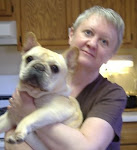Deciding to have weight loss surgery, and choosing which procedure to have, is a big deal. The surgery has life-changing potential, and we want our decision about it to yield only the best results: at the very least, weight loss without complications. But like many things in life, the adjustable gastric band doesn’t come with a lifetime weight loss guarantee . That lack, and the fact that many insurance companies cover only one bariatric surgery procedure in a patient’s lifetime, puts even more pressure on us to make the right decision at the outset. Are there ways to make the decision-making clearer or easier beforehand, and/or to reduce the doubt, regret, or second-guessing after surgery?
The answer to that is maddeningly general: it all depends.
First of all, it depends on your unique personality. What type of decision-maker are you? Does your style change (and your anxiety escalate) depending on the nature of the decision? Choosing a $14.99 entrée from a restaurant menu usually doesn’t take as much time and energy as choosing a $14,999 surgical procedure.
Here’s what I mean by decision-making styles. I am a quick, sometimes impulsive decision maker who’d rather make a bad choice than no choice. My husband is a slow, cautious decision maker, one who must carefully consider and discuss every aspect of a situation before making his decision. What could be a potential conflict has turned out to be a useful balancing factor in our relationship. My husband’s cautious nature prevents me from leaping before I look, and my more adventurous nature prevents him from being permanently cemented to a bad patch of road.
Here's a list of common decision-making styles. Which category (or categories) do you fall into?
Agony – agonizing over a decision should perhaps be reserved for a very important decision but can be a waste of energy for less important decisions. Choosing a WLS procedure is important; choosing what to eat for breakfast on Tuesday is less important. I encounter a lot of people who fall into the agony category. They tend to do so much research, thinking, and analysis that they agonize themselves into paralysis. Taking a mini vacation from the decision can help neutralize the pain and paralysis this decision-maker feels, but be careful not to turn into a procrastinator (see below).
Impulsive – Like me, you go with your first or “gut” reaction.
Escapist – You avoid making a decision by creating a false choice. For example, you’re reluctant to decide about WLS, so you escape it by saying, “I’m going to lose weight on my own,” for the millionth time.
Compliant – You let someone else decide for you. Your surgeon says, “You should have RNY,” so you have RNY.
Playing it Safe – You choose the least risky option. Risk might be assessed in terms of surgical mortality (0% for the band) or out-of-pocket cost (you choose whichever procedure your insurance policy will cover).
Procrastinator– You delay your decision indefinitely, so it stays in the background of your life, like mental wallpaper. This might be a wise choice if you truly believe you don’t have enough information to make a good decision. Perhaps the VSG looks good to you, but it’s too new a procedure to have enough studies and data about success and complication rates published about it.
Fatalistic – You shrug and say,”What will be, will be.”
None of these styles are any better or worse than the other. I just want to reassure you (if you’re slow to decide, it’s perfectly okay) and also to encourage you to consider other approaches to the decision-making process. As impulsive a decision-maker as I can be, several times in my life I’ve faced some decisions (especially in business, where the decision involved millions of dollars of my employer’s money) that looked like Mount Everest. A few times, I was fortunate enough to work for a man who was willing to listen to me debate the issue and to ask me things like, “What if you look at it a different way?” His different approach sometimes helped me see a path I hadn’t noticed before, and other times helped me see that a path I’d already considered was actually the best one.
Sunday, August 28, 2011
Subscribe to:
Post Comments (Atom)







No comments:
Post a Comment